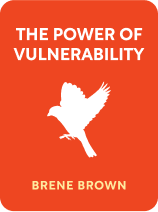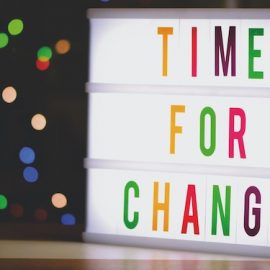

This article is an excerpt from the Shortform book guide to "The Power Of Vulnerability" by Brené Brown. Shortform has the world's best summaries and analyses of books you should be reading.
Like this article? Sign up for a free trial here .
What is shame? How can you determine your proneness to shame, guilt, and blame?
In her TED Talk, Brené Brown discusses the differences between shame, guilt, blame, embarrassment, and humiliation. Brown also discusses the TOSCA test for determining your proneness to the above emotions.
Continue reading for Brené Brown’s take on what shame is.
Brené Brown on Shame
What is shame? According to Brené Brown, shame is insecurity that attaches to self-identity and gets in the way of action or vulnerability. It causes people to believe that they’re unworthy or unloveable. For example, if you feel shame about the way you look, and someone rejects you romantically, you may believe that you’re not “attractive enough,” diminishing your self-worth in the process.
Shame relies on people believing that their experience with insecurity is unrelatable, creating a sense of loneliness. This often causes people to believe that no one else could possibly understand their situation, leading to the development of three factors that allow shame to grow: secrecy, silence, and judgment.
For example, a common form of shame is known as “imposter syndrome,” or the feeling that you’re a fraud. Imposter syndrome requires that you believe that the people around you are more qualified than you are and can’t understand your insecurity. This may lead you to keep your fears to yourself (silence), prevent others from seeing any potential weaknesses (secrecy), and increase your awareness of the failures of others (judgment).
Though shame feels isolating, everyone experiences it (with the exception of severe psychopaths). While no one wants to share their insecurities, talking about shame is the only way to diminish its power because, once you know that you’re not alone, shame loses its leverage.
Guilt, Blame, Embarrassment, and Humiliation
Though the terms are often used interchangeably, shame isn’t the same as guilt, blame, embarrassment, or humiliation.
Guilt Versus Shame
Guilt is attached to an action or behavior, not your identity. Guilt makes you say, “That was a bad decision.” Guilt can be a useful tool to stop making poor decisions. For example, an alcoholic feeling guilt about a relapse usually won’t give up on recovery because, while they know they made a bad decision, they don’t believe they’re a “bad person.”
Shame is attached to identity, not to an action or behavior. Shame makes you say, “I am a bad person.” Shame often causes people to fall further into unhealthy behavior. For example, an alcoholic feeling shame about their relapse will often spiral further into their addiction because they believe they’re irredeemable.
Blame Versus Shame
Blaming is the discharging of emotions that are often unrelated to the inciting incident. For example, your partner comes home late one night, causing you to get less sleep. The next morning, you accidentally drop a mug on the floor. You may blame your clumsiness on the fact that your partner disrupted your sleep while, in reality, they had little to do with you dropping the mug.
Shaming, on the other hand, is a pointed attack that targets someone’s insecurities. For example, your partner comes home late one night. You know they’re upset that they haven’t been able to spend time with the family, but you’re exhausted and frustrated. You begin yelling at them for spending too much time at work and not enough time with the kids, causing them to fall deeper into their shame.
Embarrassment Versus Shame
Embarrassment is a temporary moment of discomfort. While embarrassing situations can be hard to handle in the moment, their emotional impact often lessens with time. For example, if you trip on your way to accept an award, you may feel embarrassed in the moment. However, with a bit of time, the experience loses its impact, potentially becoming humorous.
Shame is long-lasting and crippling. Often, people remember shameful experiences years after they’ve occurred. For example, if you were told as a child that you should never sing because you sound terrible, you may avoid public singing for the rest of your life because you never want to relive that experience.
Humiliation Versus Shame
Humiliation is a demeaning experience that you believe you didn’t deserve. Humiliation doesn’t impact self-worth and often leads to anger. For example, if a teacher yells at you for showing up a minute late to class, and you don’t feel you deserved that kind of response, you may feel upset, but you don’t think less of yourself.
Shame is a demeaning experience that you believe you did deserve. Shame impacts self-worth and often leads to retraction or silence. For example, if your boss calls you an idiot in front of your colleagues, and you believe them, your shame may cause you to say nothing and internalize your insecurity.
The TOSCA Test
The TOSCA test determines your proneness to shame, guilt, and blame by gauging your immediate responses to different scenarios. Based on your responses to these scenarios, you can acknowledge your tendencies, helping you notice them in real-life situations. For example, you drop red wine on a white carpet. What’s your first response? Do you:
- Find the host immediately and apologize for what happened. (Guilt)
- Look around to see if anyone saw what you did, then slip away unseen. (Shame)
- Ask yourself, “Why are they serving red wine if they have a white carpet?” (Blame)

———End of Preview———
Like what you just read? Read the rest of the world's best book summary and analysis of Brené Brown's "The Power Of Vulnerability" at Shortform .
Here's what you'll find in our full The Power Of Vulnerability summary :
- The 10 practices that you can use to embrace vulnerability and start living a wholehearted life
- Why thinking that you're never "enough" is dangerous
- The most common sources of shame and how to overcome them






